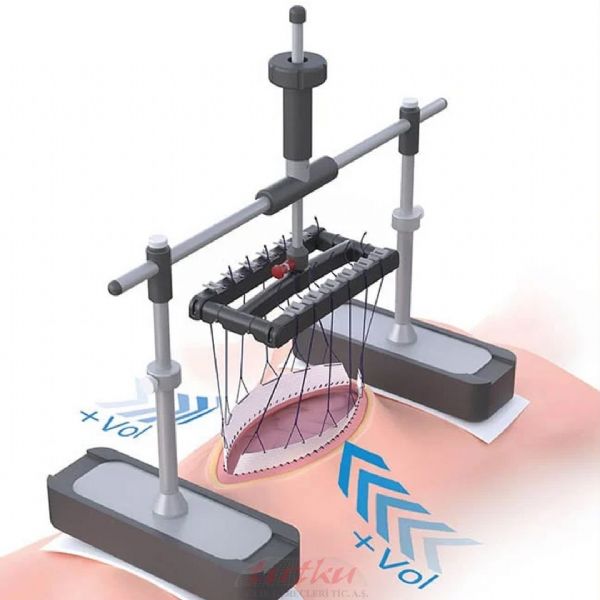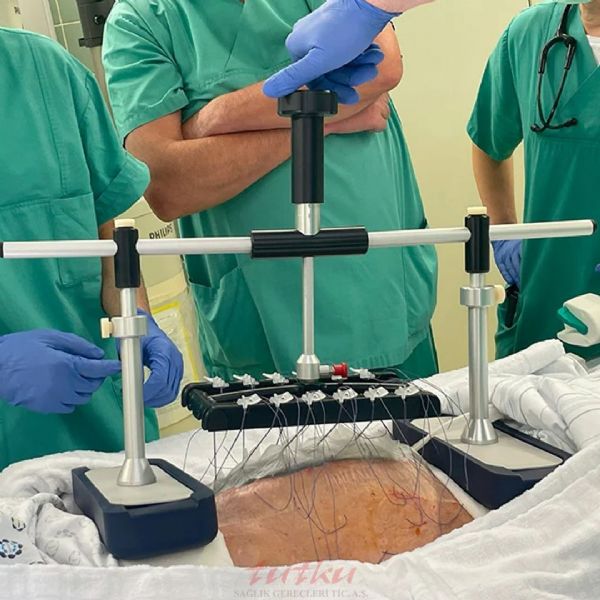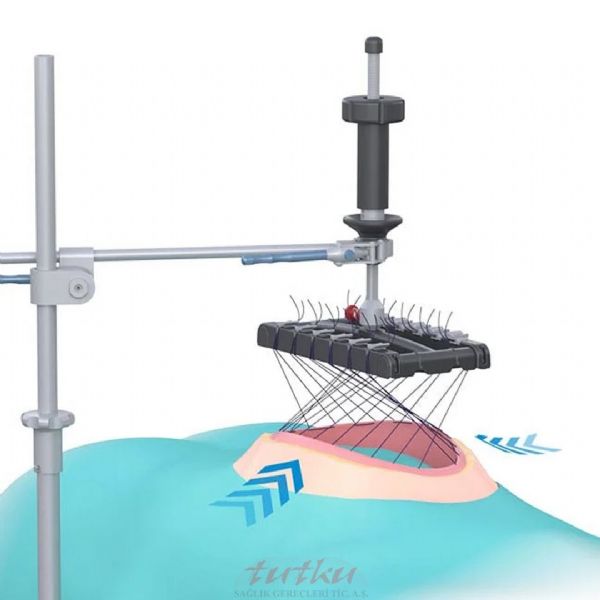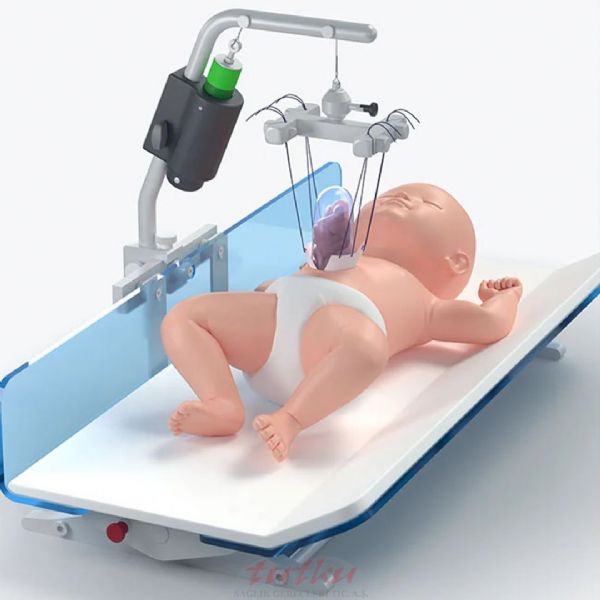Fasciotens | Abdominal Wall Solutions
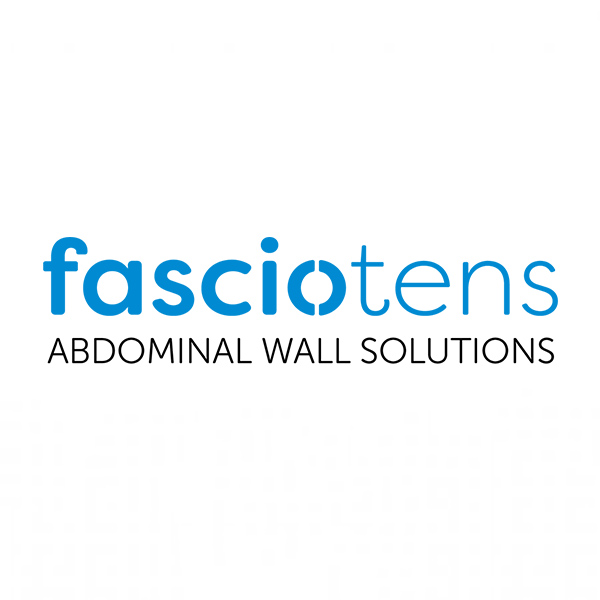
Fasciotens Abdomen
Change your direction of open abdomen treatment
Leaving an abdomen open is often a necessary and life-saving measure. However, this kind of therapy comes with various challenges. Many of these can be overcome by applying vertical traction to the abdominal wall. Learn how and why our solution can improve your patient's condition and therapy outcome.
Share
Suitable Accessories
Revolution in open abdominal therapy
What is different about using Fasciotens® solution?
Preventing abdominal wall retraction
By applying vertical traction to the abdominal wall immediately, retraction of the lateral abdominal muscles can be prevented. Especially in the early phase of open abdominal therapy, horizontal traction cannot be applied sufficiently. In contrast, vertical traction can be applied from the very beginning, regardless of the degree of intestinal edema, and ultimately accelerates the final closure of the abdominal wall at the end of the treatment.
Immobilization of the patient*
The technique of applying vertical traction to the abdominal wall increases the intra-abdominal volume. The expansion of the abdominal cavity causes a decrease in intra-abdominal pressure (determining the IAP is one of the most important factors in patient stabilization.
Easy integration into daily intensive care routines
The device is designed to be used seamlessly in the intensive care unit. It can be removed and reattached in seconds for emergencies or patient care. Training the intensive care team is a vital part of our orientation process. We make sure to support you in the best possible way.
Seamless combination with NPWT
fasciotens® can be easily combined with other techniques such as negative pressure wound therapy (NPWT). We have prepared a step-by-step guide for applying the wound dressing.
How does it work?
Vertical traction is the solution to succeed in open abdomen treatment
The fasciotens®Abdomen device applies controlled vertical traction to the abdominal wall. It increases the volume of the abdominal cavity and thus reduces the intra-abdominal pressure. This can have beneficial effects on lung function, organ perfusion and renal output*.
Additionally, the device prevents fascial retraction, facilitating direct closure after the oedema decreases. Revision surgeries or "planned" incisional hernias become much less likely.
Frequently Asked Questions
Why should I not stick to horizontal mesh traction?
pen abdominal treatment reduces intra-abdominal pressure and resolves abdominal compartment syndrome. By opening the abdomen, you increase the volume in the abdominal cavity. Applying horizontal traction helps prevent fascial retraction, but it can reduce the intra-abdominal volume and increase the intra-abdominal pressure again. Therefore, you should normally wait until the intestinal edema and distension have decreased to a level that allows the use of horizontal mesh traction. In the meantime, the lateral abdominal wall muscles retract.
Is it possible to combine Fasciotens® Abdomen treatment with other techniques?
Absolutely! Depending on the patient's condition, different techniques can or should be added to our therapy. In many cases, vertical fascial traction is combined with abdominal negative pressure wound therapy.
What is the procedure for my first consultation?
Simply contact your local fasciotens partner or contact us directly. One of our surgeons or fasciotens® specialists will discuss your case with you and we will agree together whether fasciotens® is suitable. We will ensure that a fasciotens® specialist is present during the treatment and will also provide comprehensive training for the staff in the intensive care unit.
How long does treatment with Fasciotens®Abdomen take?
This largely depends on the patient's condition.
If the patient is stabilised in a short time, a direct fascial closure can be performed.
It usually takes several days, sometimes even weeks. The device will be applied either in the operating room or in the intensive care unit.
How does Fasciotens®Abdomen fit into the daily routine in the intensive care unit?
Our intensive care team will receive comprehensive training from our fasciotens® specialists. They can carry out all their daily tasks as usual.

